Find more Information About Scams & Scammers On RomanceScamsNOW.com
Visit the SCARS Encyclopedia of Scams
The World’s #1 Scam Information Website
Click Here To Donate To SCARS
Badly Photoshopped Stolen Photos Of Men/Women/Soldiers
SCARS™ Scammer Gallery Collection
Each is an Impersonation / Identity Theft Victim
SCARS Resources For Scam Victims
- For New Victims of Relationship Scams newvictim.AgainstScams.org
- Subscribe to SCARS Newsletter newsletter.againstscams.org
- Sign up for SCARS professional support & recovery groups, visit support.AgainstScams.org
- Join our Scam Survivors United Chat & Discussion Group facebook.com/groups/scam.survivors.united
- Find competent trauma counselors or therapists, visit counseling.AgainstScams.org
- Become a SCARS Member and get free counseling benefits, visit membership.AgainstScams.org
- Report each and every crime, learn how to at reporting.AgainstScams.org
- Learn more about Scams & Scammers at RomanceScamsNOW.com and ScamsNOW.com
- Global Cyber Alliance ACT Cybersecurity Tool Website: Actionable Cybersecurity Tools (ACT) (globalcyberalliance.org)
- Scammer photos ScammerPhotos.com
- SCARS Videos youtube.AgainstScams.org
- Self-Help Books for Scam Victims are at shop.AgainstScams.org
- Donate to SCARS and help us help others at donate.AgainstScams.org
- Worldwide Crisis Hotlines: https://blog.opencounseling.com/suicide-hotlines/
– – – – – – – –
–
SCARS™ Scammer Gallery: Collection Of Badly Photoshopped Stolen Photos Of Men/Women/Soldiers
March 2021
Here Are Photos We Have Found Being Used Recently By Scammers!
Scammers try their hand at editing the photos to put other faces on them to match their stories, but they are not always very good.
Remember, scammers use tens of thousands of fake or stolen names for each face they steal. Don’t worry about a name, there are billions of fake profiles now on social media and even more on dating websites. All of these photos were stolen by scammers and found on fake Facebook & social media profiles, or elsewhere.
All you need to remember is this: if ANYONE asks you for money online and you do not know them or cannot verify them, they are a scammer! React accordingly!
These photos and others are shared so you can find them in Google & TinEye.com image searches
Click On An Image To View – If The Gallery Does Not Display Refresh The Page
TAGS: SCARS, Romance Scammers, Romance Scams, Love Scam, Dating Scam, False Identity, Fake Profile, Fake Military, Fake Soldier, Impersonation, African Scammers, Ghana Scammer, Nigerian Scammer, Scammer Gallery, Fake Faces, Fake Female, Fake Men, Stolen Photos, Bad Photoshopped Photos, Edited Photos
By the SCARS™ Editorial Team
Society of Citizens Against Relationship Scams Inc.
A Worldwide Crime Victims Assistance Nonprofit Organization
To Learn More or Donate Visit: www.AgainstScams.org
Contact Us: Contact@AgainstScams.org
The Latest New or Updated SCARS Scammer Photos Galleries
STOLEN WOMEN | STOLEN MEN | STOLEN MILITARY | REAL SCAMMERS | REAL WOMEN | SCAMMERS ARRESTED
TAGS: SCARS, Romance Scammers, Romance Scams, Love Scam, Dating Scam, False Identity, Fake Profile, Fake Soldier, Impersonation, African Scam, Ghana Scammer, Nigerian Scammer, Scammer Gallery, Fake Faces, Fake Female, Fake Men, Latest Stolen Photos Of,
FAQ: How Do You Properly Report Scammers?
It is essential that law enforcement knows about scams & scammers, even though there is nothing (in most cases) that they can do.
Visit reporting.AgainstScams.org to find resources to properly report these crimes.
CLARIFICATION & DISCLAIMER
The photos contained on this website have been reported by scam victims as being used by scammers through the SCARS|CDN™ Cybercrime Data Network. Some have been reported as actual criminals and some as being stolen from real people and used by fraudsters. This information was submitted to SCARS for the specific purpose of public publication and does not violate any privacy laws or regulations, nor copyright as these represent potential evidence of a crime.
Additionally, this work is part of an ongoing study by SCARS to better understand the referencing of cybercriminals in the selection of stolen images & identities.
SCARS makes no claim on the accuracy of these reports and presents the information as it was reported to SCARS. SCARS assumes no liability for this user-created information as per the Communications Decency Act Section 230.
If you believe a photo has been incorrectly reported, please complete the form here – click here (on our RomanceScamsNOW.com website). SCARS will review your request as rapidly as possible and notify you by email of the outcome. You may follow up by email 10 days after completing the form if you do not receive a reply.
Interpretation and Definitions
Definitions
For the purposes of this Disclaimer:
- Company (referred to as either “the Company”, “We”, “Us” or “Our” in this Disclaimer) refers to Society of Citizens Against Relationship Scams Inc. (registered d.b.a. “SCARS”,) 9561 Fountainbleau Blvd., Suit 602, Miami FL 33172.
- Service refers to the Website.
- You means the individual accessing this website, or the company, or other legal entity on behalf of which such individual is accessing or using the Service, as applicable.
- Website refers to RomanceScamsNOW.com, accessible from https://romancescamsnow.com
Website Disclaimer
The information contained on this website is for general information purposes only.
The Company assumes no responsibility for errors or omissions in the contents of the Service.
In no event shall the Company be liable for any special, direct, indirect, consequential, or incidental damages or any damages whatsoever, whether in an action of contract, negligence or other tort, arising out of or in connection with the use of the Service or the contents of the Service. The Company reserves the right to make additions, deletions, or modifications to the contents on the Service at any time without prior notice.
The Company does not warrant this website in any way.
External Links Disclaimer
This website may contain links to external websites that are not provided or maintained by or in any way affiliated with the Company.
Please note that the Company does not guarantee the accuracy, relevance, timeliness, or completeness of any information on these external websites.
Errors and Omissions Disclaimer
The information given by SCARS is for general guidance on matters of interest only. Even if the Company takes every precaution to ensure that the content of this website is both current and accurate, errors can occur. Plus, given the changing nature of laws, rules, and regulations, there may be delays, omissions, or inaccuracies in the information contained on this website.
SCARS is not responsible for any errors or omissions, or for the results obtained from the use of this information.
Fair Use Disclaimer
SCARS may use copyrighted material that has not always been specifically authorized by the copyright owner. The Company is making such material available for criticism, comment, news reporting, teaching, scholarship, or research.
The Company believes this constitutes a “fair use” of any such copyrighted material as provided for in section 107 of the United States Copyright law.
If You wish to use copyrighted material from this website for your own purposes that go beyond fair use, You must obtain permission from the copyright owner.
Views Expressed Disclaimer
The Service may contain views and opinions which are those of the authors and do not necessarily reflect the official policy or position of any other author, agency, organization, employer, or company, including SCARS.
Comments published by users are their sole responsibility and the users will take full responsibility, liability, and blame for any libel or litigation that results from something written in or as a direct result of something written in a comment. The Company is not liable for any comment published by users and reserves the right to delete any comment for any reason whatsoever.
No Responsibility Disclaimer
The information on the Service is provided with the understanding that the Company is not herein engaged in rendering legal, accounting, tax, medical or mental health, or other professional advice and services. As such, it should not be used as a substitute for consultation with professional accounting, tax, legal, medical or mental health, or other competent advisers.
In no event shall the Company, its team, board of directors, volunteers, or its suppliers be liable for any special, incidental, indirect, or consequential damages whatsoever arising out of or in connection with your access or use or inability to access or use the Service.
“Use at Your Own Risk” Disclaimer
All information on this website is provided “as is”, with no guarantee of completeness, accuracy, timeliness or of the results obtained from the use of this information, and without warranty of any kind, express or implied, including, but not limited to warranties of performance, merchantability, and fitness for a particular purpose.
SCARS will not be liable to You or anyone else for any decision made or action taken in reliance on the information given by the Service or for any consequential, special, or similar damages, even if advised of the possibility of such damages.
Contact Us
If you have any questions about this Disclaimer, You can contact Us:
- By email: contact@AgainstScams.org
SCARS IS A DIGITAL PUBLISHER AND DOES NOT OFFER HEALTH OR MEDICAL ADVICE, LEGAL ADVICE, FINANCIAL ADVICE, OR SERVICES THAT SCARS IS NOT LICENSED OR REGISTERED TO PERFORM.
IF YOU’RE FACING A MEDICAL EMERGENCY, CALL YOUR LOCAL EMERGENCY SERVICES IMMEDIATELY, OR VISIT THE NEAREST EMERGENCY ROOM OR URGENT CARE CENTER. YOU SHOULD CONSULT YOUR HEALTHCARE PROVIDER BEFORE FOLLOWING ANY MEDICALLY RELATED INFORMATION PRESENTED ON OUR PAGES.
ALWAYS CONSULT A LICENSED ATTORNEY FOR ANY ADVICE REGARDING LEGAL MATTERS.
A LICENSED FINANCIAL OR TAX PROFESSIONAL SHOULD BE CONSULTED BEFORE ACTING ON ANY INFORMATION RELATING TO YOUR PERSONAL FINANCES OR TAX RELATED ISSUES AND INFORMATION.
SCARS IS NOT A PRIVATE INVESTIGATOR – WE DO NOT PROVIDE INVESTIGATIVE SERVICES FOR INDIVIDUALS OR BUSINESSES. ANY INVESTIGATIONS THAT SCARS MAY PERFORM IS NOT A SERVICE PROVIDED TO THIRD-PARTIES. INFORMATION REPORTED TO SCARS MAY BE FORWARDED TO LAW ENFORCEMENT AS SCARS SEE FIT AND APPROPRIATE.
This content and other material contained on the website, apps, newsletter, and products (“Content”), is general in nature and for informational purposes only and does not constitute medical, legal, or financial advice; the Content is not intended to be a substitute for licensed or regulated professional advice. Always consult your doctor or other qualified healthcare provider, lawyer, financial, or tax professional with any questions you may have regarding the educational information contained herein. SCARS makes no guarantees about the efficacy of information described on or in SCARS’ Content. The information contained is subject to change and is not intended to cover all possible situations or effects. SCARS does not recommend or endorse any specific professional or care provider, product, service, or other information that may be mentioned in SCARS’ websites, apps, and Content unless explicitly identified as such.
The disclaimers herein are provided on this page for ease of reference. These disclaimers supplement and are a part of SCARS’ website’s Terms of Use.
All original content is Copyright © 1991 – 2023 Society of Citizens Against Relationship Scams Inc. (Registered D.B.A SCARS) All Rights Reserved Worldwide & Webwide. Third-party copyrights acknowledge.
U.S. State of Florida Registration Nonprofit (Not for Profit) #N20000011978 [SCARS DBA Registered #G20000137918] – Learn more at www.AgainstScams.org
SCARS, SCARS|INTERNATIONAL, SCARS, SCARS|SUPPORT, SCARS, RSN, Romance Scams Now, SCARS|INTERNATION, SCARS|WORLDWIDE, SCARS|GLOBAL, SCARS, Society of Citizens Against Relationship Scams, Society of Citizens Against Romance Scams, SCARS|ANYSCAM, Project Anyscam, Anyscam, SCARS|GOFCH, GOFCH, SCARS|CHINA, SCARS|CDN, SCARS|UK, SCARS|LATINOAMERICA, SCARS|MEMBER, SCARS|VOLUNTEER, SCARS Cybercriminal Data Network, Cobalt Alert, Scam Victims Support Group, SCARS ANGELS, SCARS RANGERS, SCARS MARSHALLS, SCARS PARTNERS, Encyclopedia of Scams, ScamemrPhotos, are all trademarks of Society of Citizens Against Relationship Scams Inc., All Rights Reserved Worldwide
Contact the law firm for the Society of Citizens Against Relationship Scams Incorporated by email at legal@AgainstScams.org











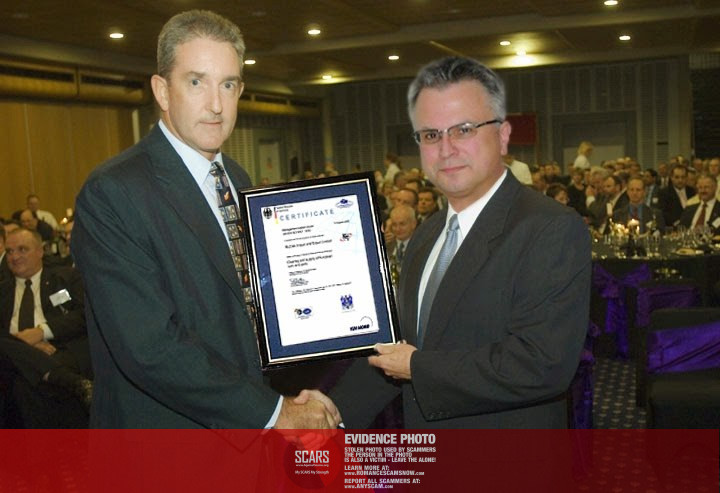













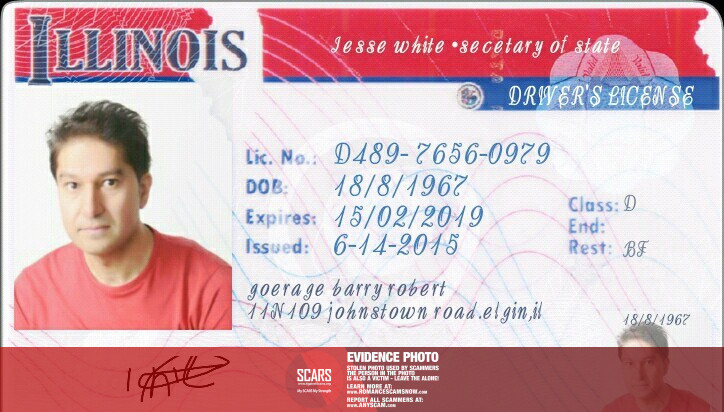
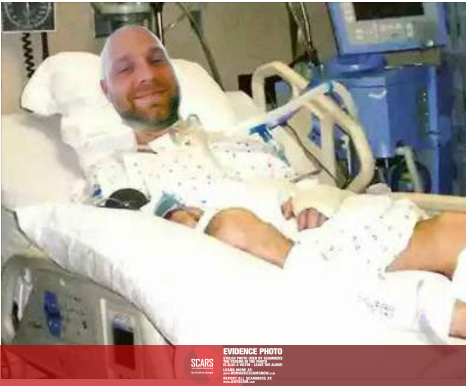











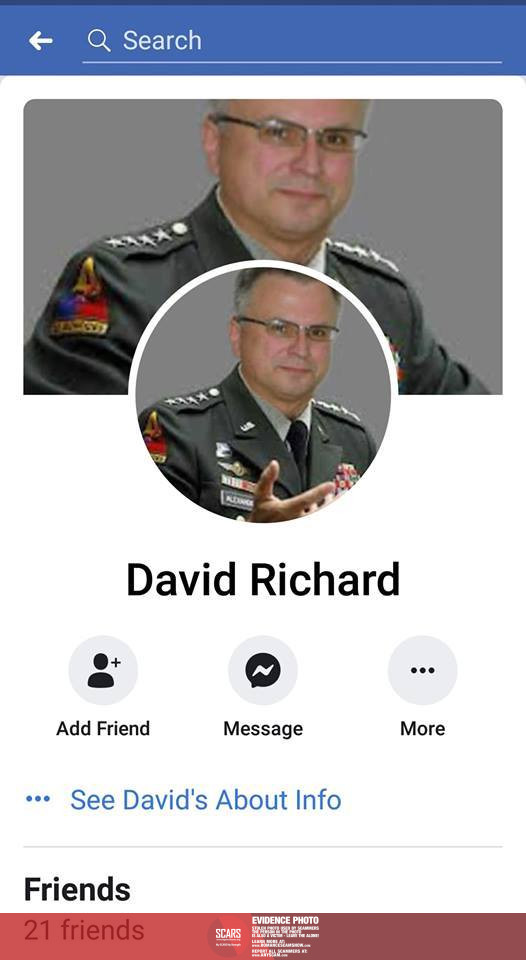












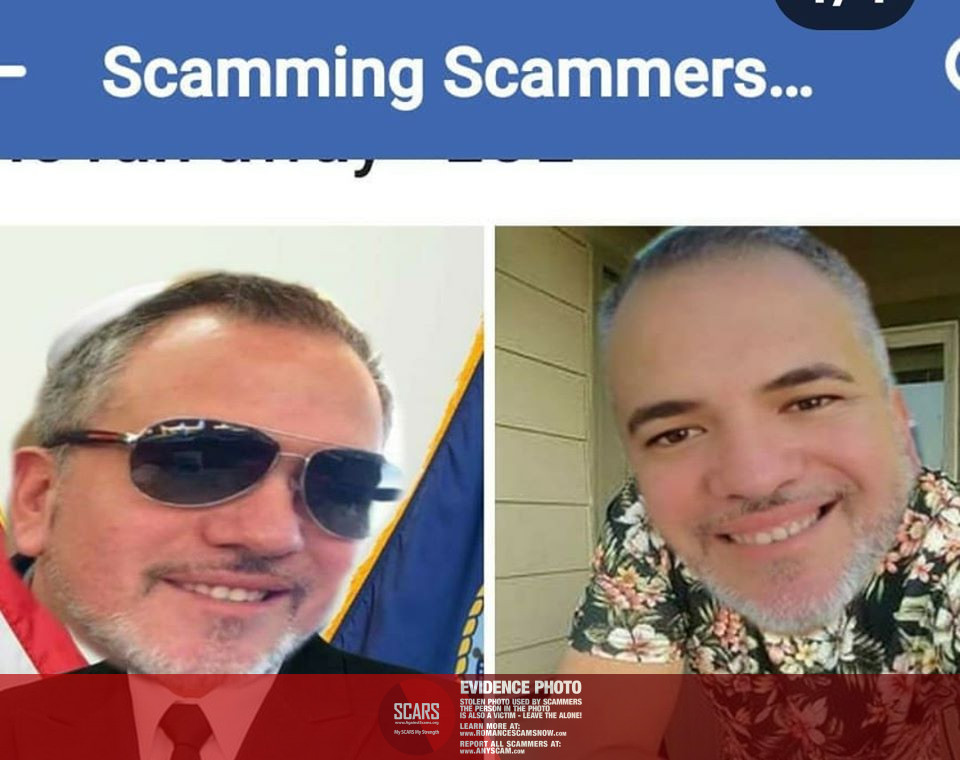





































































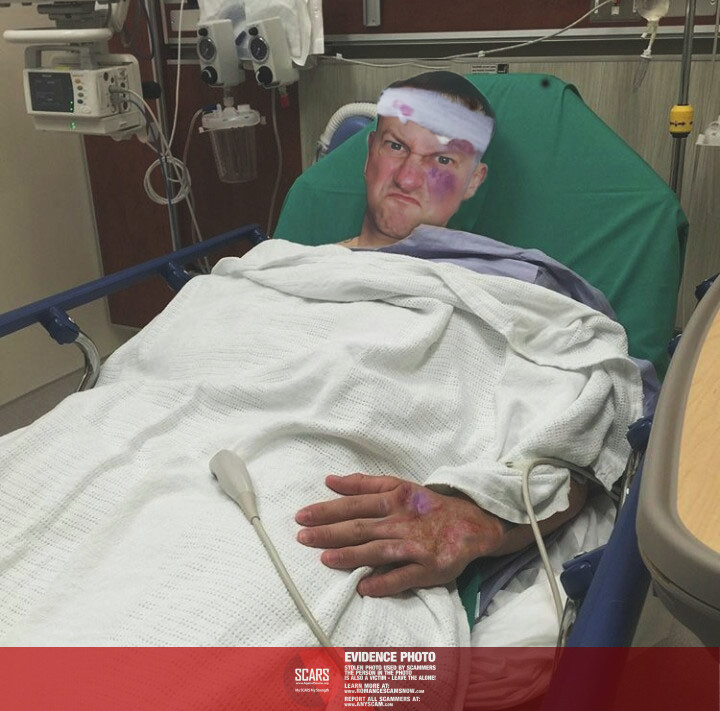










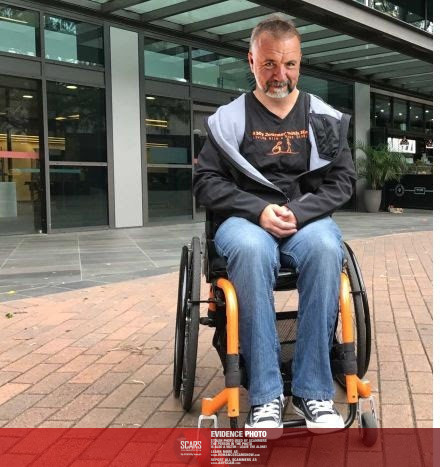



















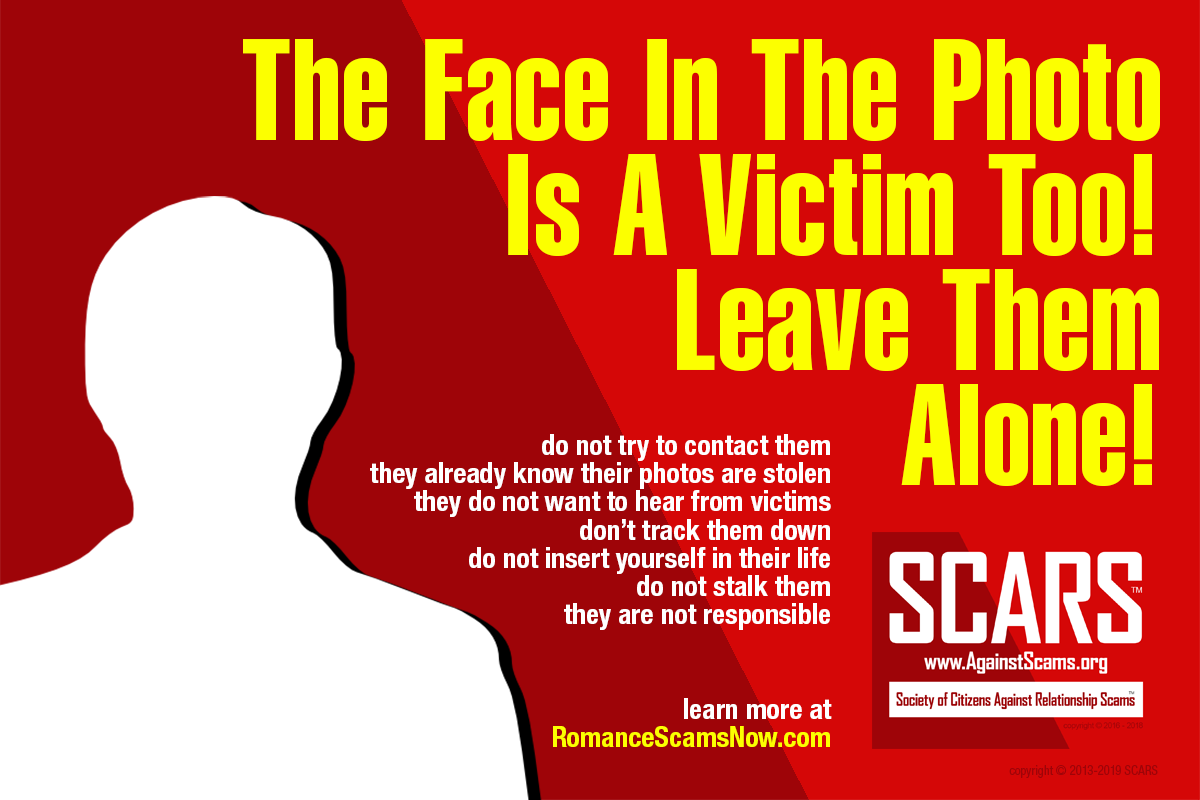
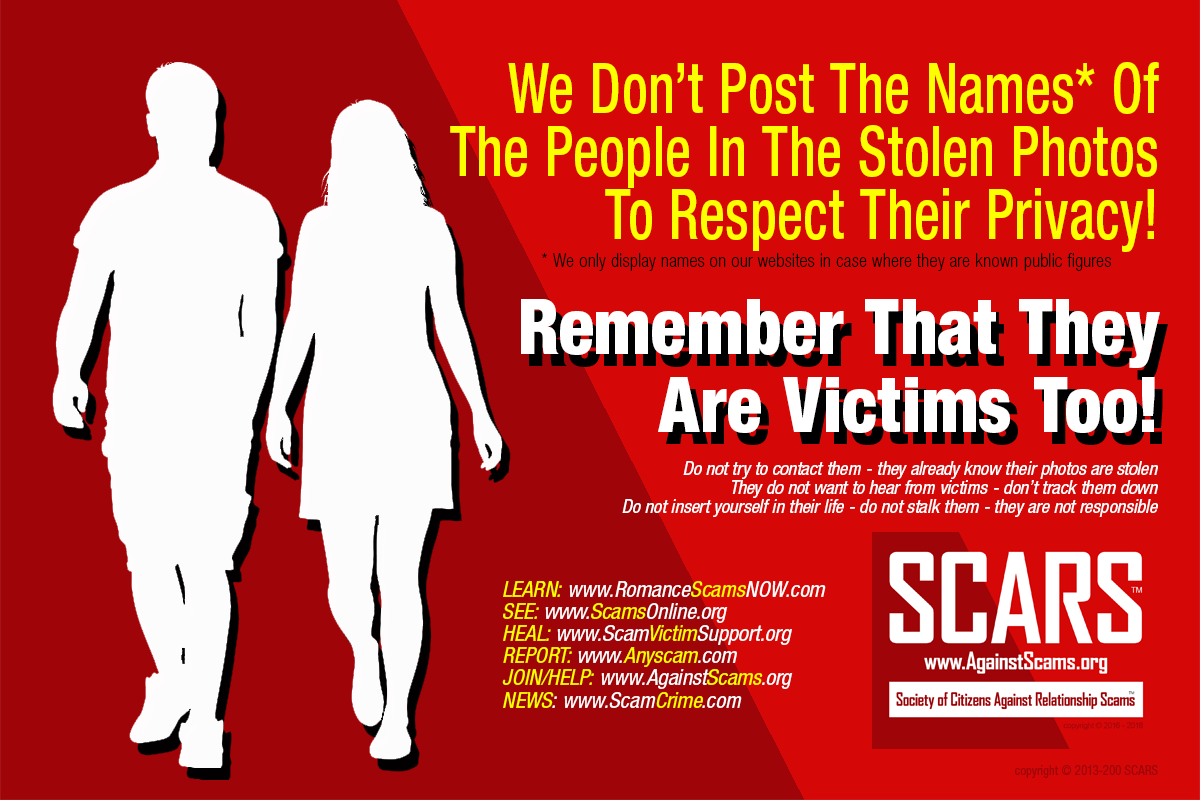


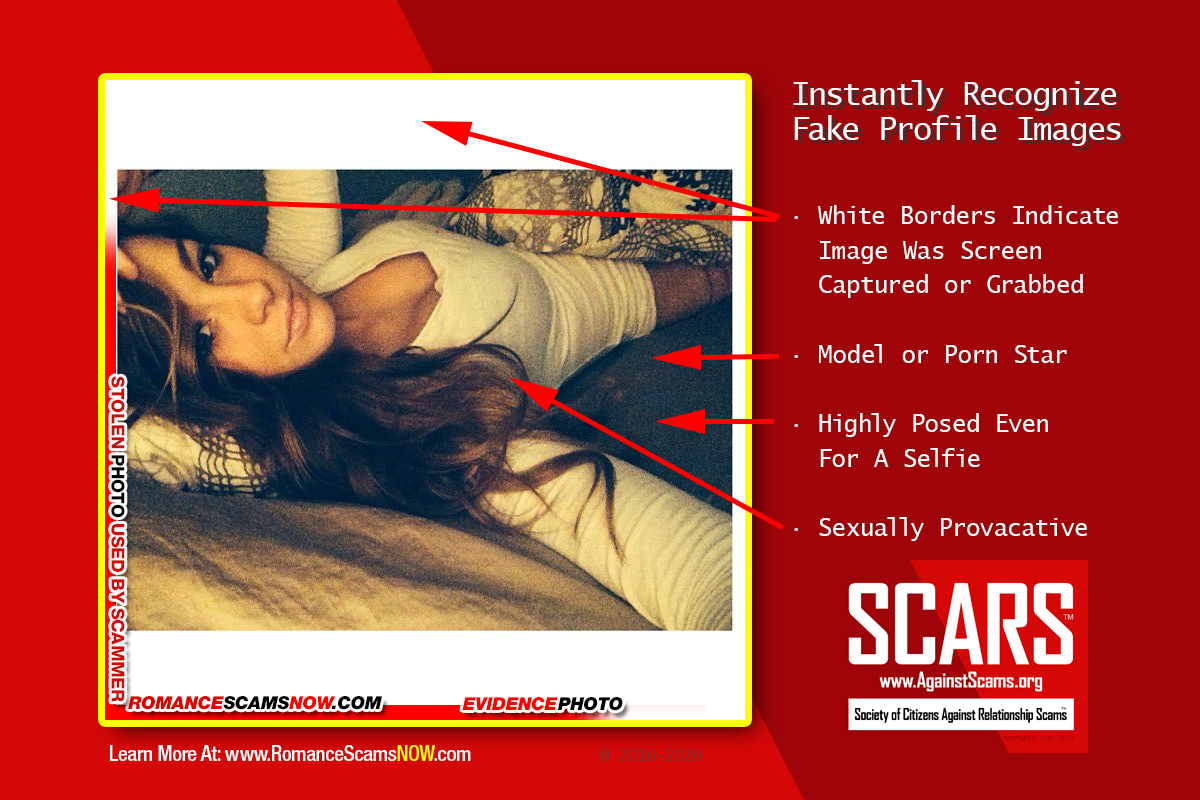
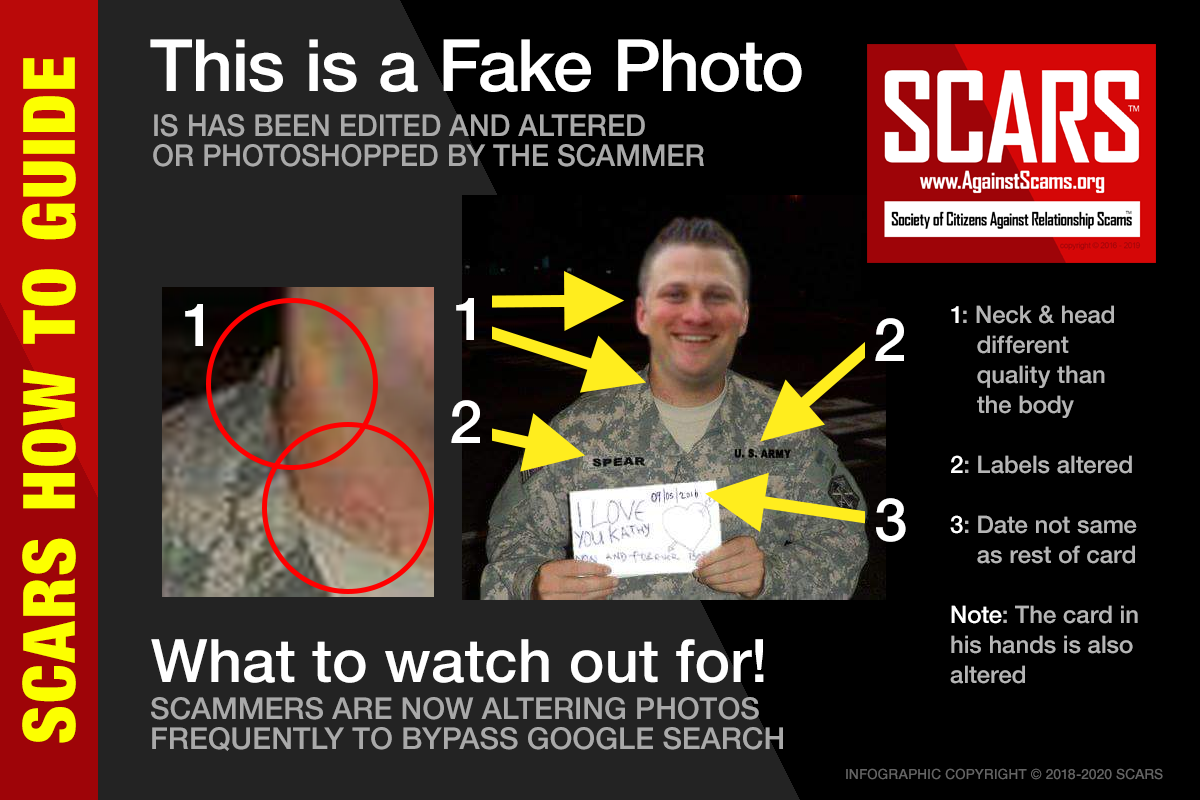
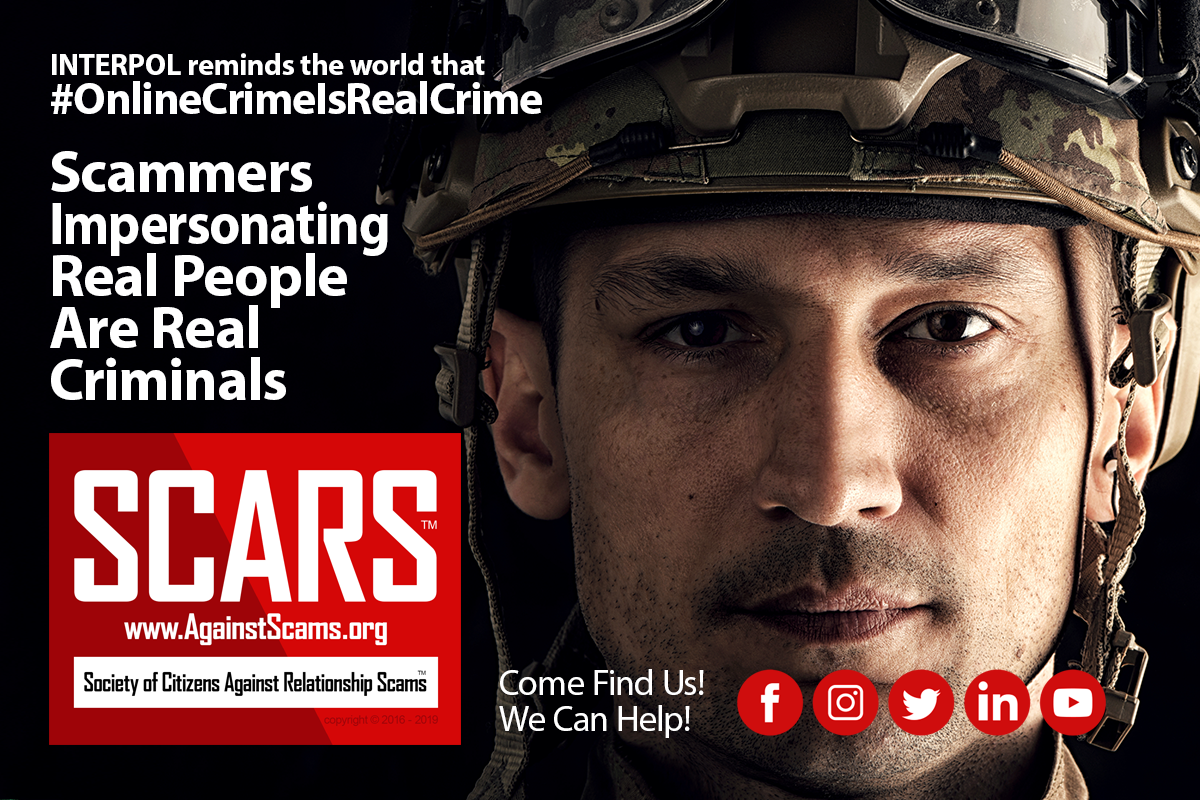




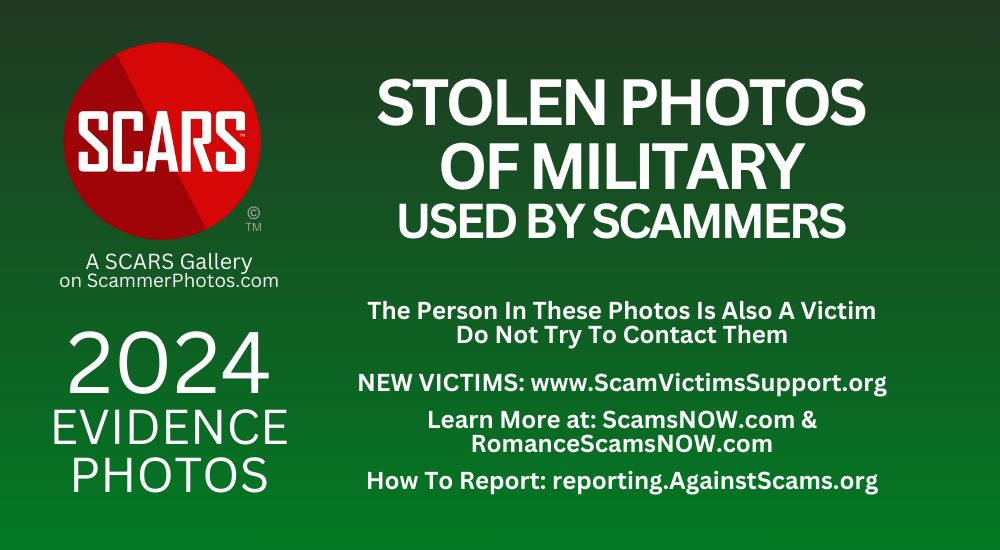
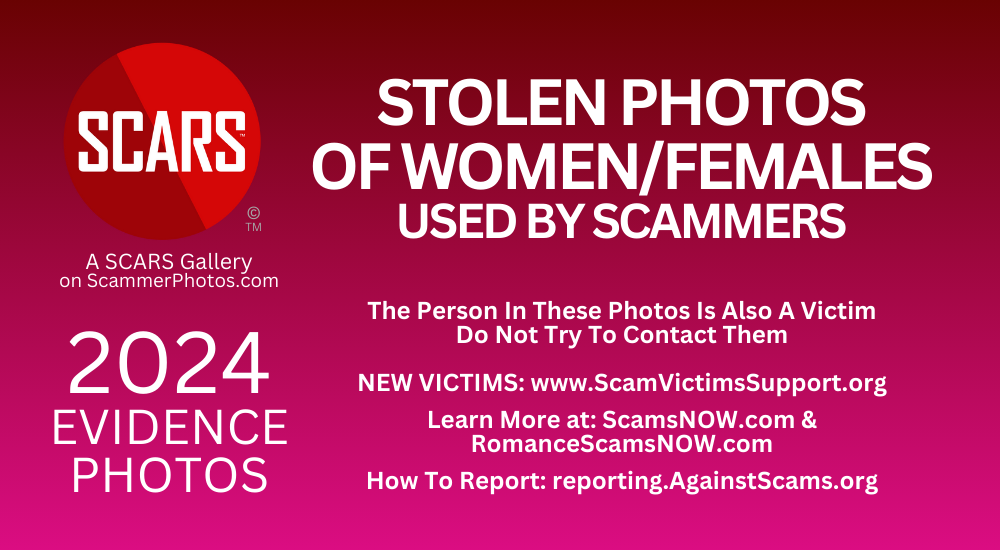
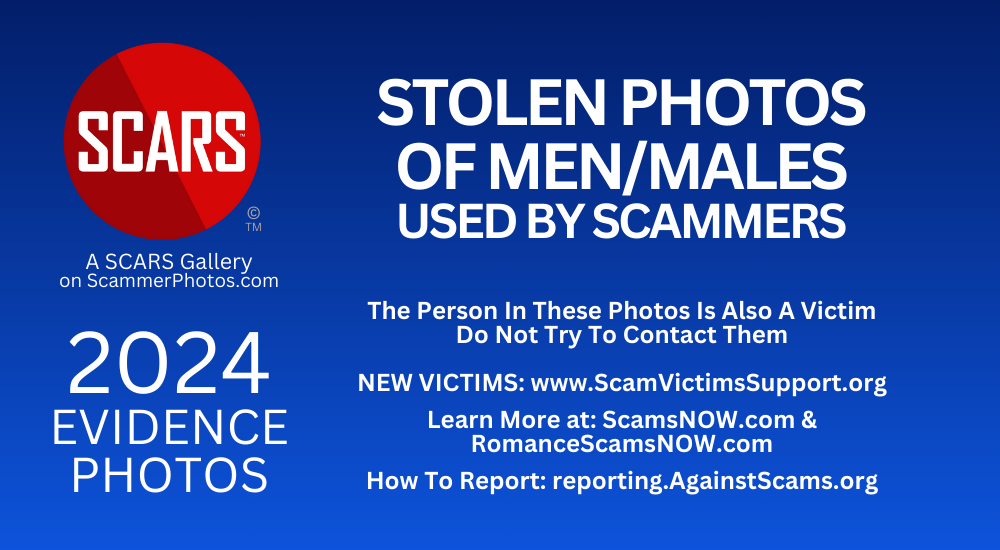


Leave A Comment